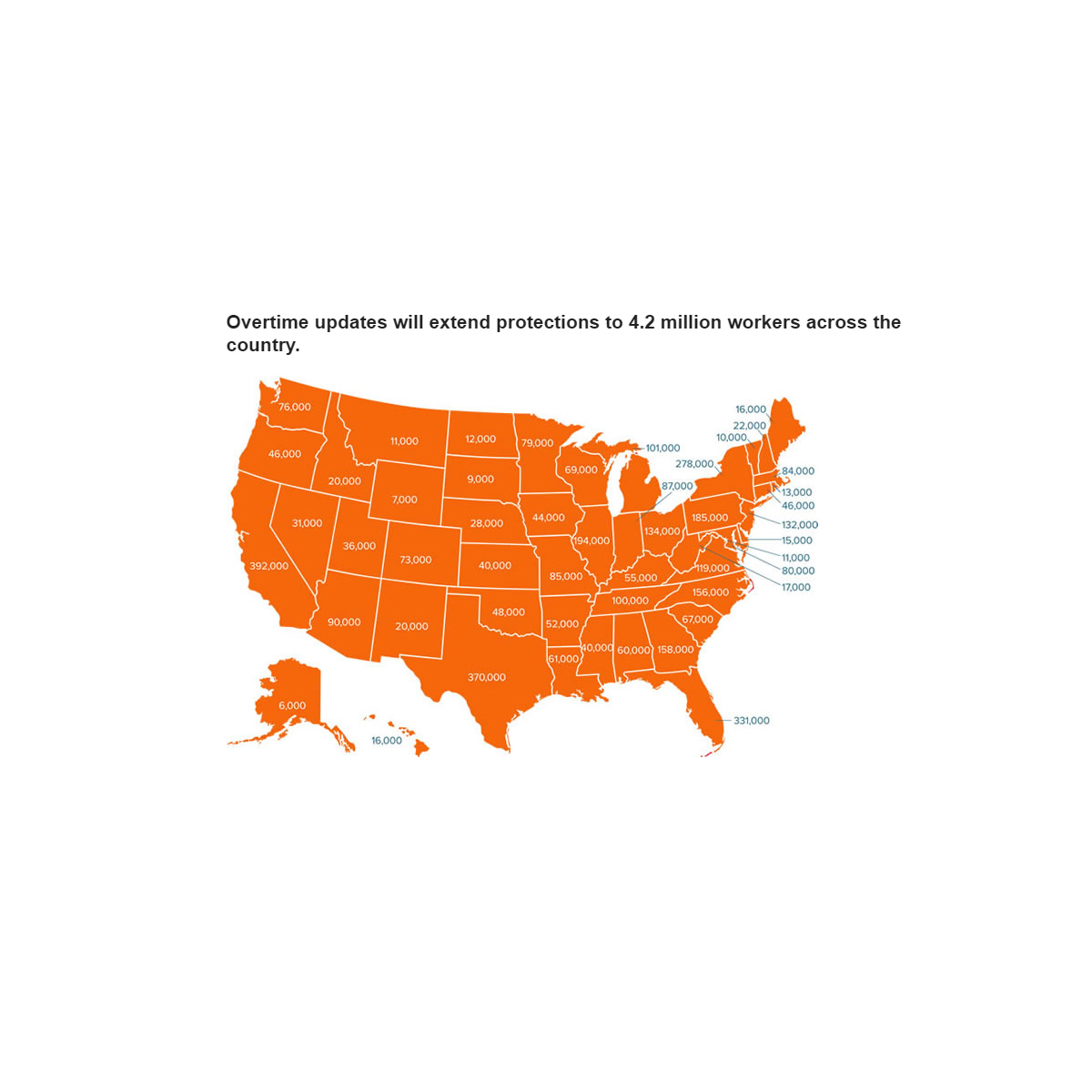The New Overtime Pay Rules May Benefit More Than Lower-Salary Workers
Salaried workers earning less than $47,476 a year aren't the only ones affected.
— -- The Labor Department's new rules governing overtime pay will affect not just those who earn less than $47,476 a year.
"There are a lot of ways this can play out," Judy Conti, a federal advocacy coordinator for the National Employment Law Project, told ABC News.
Under the new rules finalized today, those who earn salaries of less than $47,476 a year will automatically qualify for overtime pay of time-and-a-half if they work more than 40 hours a week. Previously, those who earned more than $23,660 were exempt from overtime pay. The new rules will affect 4.2 million workers in the U.S. when they go into effect Dec. 1.
With the new rules, some employers will choose to have some employees work no more 40 hours to avoid paying overtime. Also, employers who choose to increase the salaries of workers so they will be exempt from overtime pay could increase the pay of other workers.
"This is going to cause some employers to have to move up a lot of these salaries in that range, because they are going to need to keep separation in salary levels constant with some workers," Conti said.

Here are some things you should know about the new overtime rules:
Earning More Than $47,476 Won't Automatically Exclude You From Overtime
Just because you earn more than $47,476 doesn't mean you can't earn overtime pay. Highly compensated employees who pass a minimal duties test (see below) are exempt. Under the new rules, the salary minimum for highly compensated employees increased to $134,004, from $100,000.
"If they’re making that kind of salary, they have the inherent bargaining power because of their skill or salary," Conti said of highly compensated employees. "They’re not going to be subjected to 10 and 20 hours of involuntary overtime every week."
Your Job Duties Matter
The duties of people who earn $47,476 to $134,004 will determine if they are exempt from overtime.
"You have to look at the duties that somebody does and how much independent discretion they have to exercise, including hiring, firing, managing and supervising," Conti said. She added that the regulations aren't clear about how much of these "executive, administrative and professional" duties somebody has to do in order to be exempt from overtime. In California those must be the majority of a person's duties in order for the employee to be exempt from overtime pay.
"Exemption is in the eye of the beholder," Conti said. "Even opponents of overtime will complain about all the gray and judgment in determining whether someone is exempt or not."
Bonuses
For the first time, employers will be able to use nondiscretionary bonuses and incentive payments, including commissions, to satisfy up to 10 percent of the standard salary level of $47,476.
The Salary Thresholds Can Change
Future automatic updates to the Labor Department's thresholds will occur every three years, beginning Jan. 1, 2020.
How Did the Labor Department Pick $47,476 as the New Threshold?
The Labor Department's new threshold for exempt workers is $913 per week, or $47,476 annually, for a full-year worker. The Labor Department set the standard salary level at the 40th percentile of earnings of full-time salaried workers in the lowest-wage census region, the South.
The Labor Department last updated overtime regulations in 2004, when it set the weekly salary level at $455 a week, or $23,660 annually.
ABC News' John Parkinson contributed to this report.




